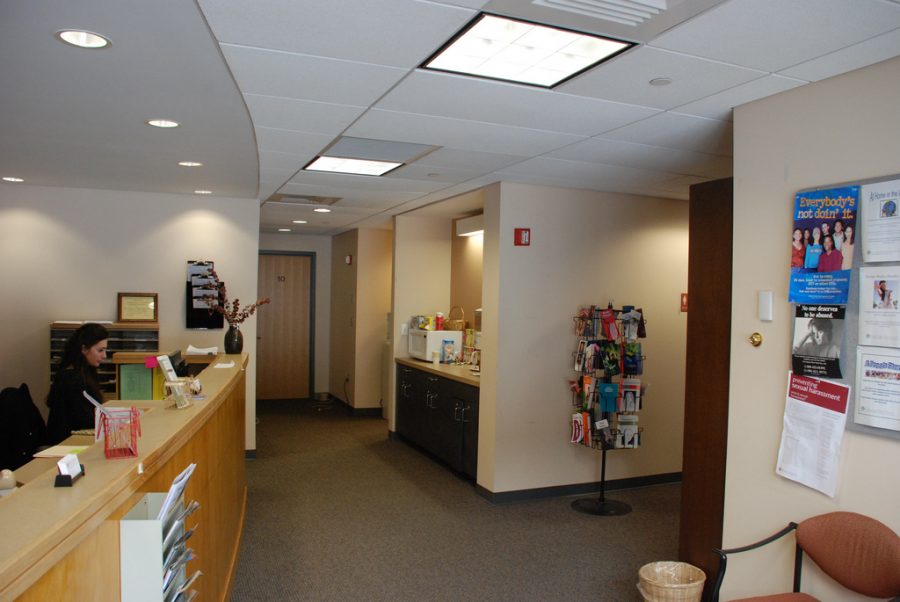CPS is Worth the Investment
By Daniel Joy
Mental illness bears a lofty price tag for many Fordham students. The dollars and cents accumulate in missed classes, uncompleted assignments and test scores, and they reflect a struggle with an invisible illness, not an innate inability. Insecurity, isolationism, misery and irritability deplete the mental capital of even the most resilient scholar. The competition for dream jobs and plush salaries is shelved for a battle for stable moods and concentration.
Fordham University also faces significant costs stemming from mental illness. When a Fordham student withdraws from the university because they do not receive the mental health care they need to function and thrive in our university community, Fordham loses their tuition payment, room and board and purchases at the bookstore.
When Fordham loses a student under these circumstances, they also lose the value of their intellect: the journal publications and grant money that may have stemmed from their research, the lesson plans they might have crafted for undergraduate students as they continued at Fordham for their terminal degrees and the name recognition they might have brought their alma mater when they go forth and set the world on fire.
Years down the road, Fordham will lose the donations the student would have made if they’d graduated and looked fondly upon the Jesuit University of New York.
In order to limit the costs incurred by both students and the university, Fordham has invested in providing mental health resources to the university community.
The Office of Counseling and Psychological Services (CPS) provides Fordham students with group counseling, up to ten sessions of individual counseling, prescriptions through their in-house psychiatrist and referrals to outside mental health providers. CPS also provides guidance and intervention training to Fordham employees and organizations. However, Fordham should consider investing more money in CPS.
For some who walk into CPS, they get their ten sessions and require no more. For others, ten sessions will not adequately address their mental health concerns. They find themselves at the end of the line, forced to confront their illness without additional university-provided talk therapy to ease their symptoms before they’re handed their diploma – if they make it that far. Some request ten sessions and are denied immediate care.
Instead, they are pigeonholed to a waitlist, where they languish without the immediate care necessitated by their condition. Others, in addition to or in place of ten sessions, seek a referral to an outside care provider only to have to remind the staff of said request before receiving their referral.
Year to year, the budget for CPS must grow at a faster rate. More counselors must be hired so more students can be seen for more sessions.
Additional support staff must be on hand to provide outside referrals for students based upon their specific insurance coverage or lack thereof, follow up with these students to ascertain whether they’ve found success with the referral and provide ad-hoc support and additional referrals to those students who have not. These support staff require a more comprehensive database for storing information on the students from the time they first walk in to far after they leave for good.
This growth in staff and information technology infrastructure must be accompanied by more office space for administration and more rooms for meeting with clients; this will necessitate the expansion of CPS from the basement of O’Hare Hall to additional satellite offices.
I understand that an increased investment in CPS would have opportunity costs; every additional dollar spent on CPS could have been spent on scholarships or teacher pay and every additional room allocated to psychological services could have been used as a classroom. However, in the long run, any additional investment in psychological services would more than pay for itself.
When students find relief for their mental health symptoms through counseling, they are able to remain as students and complete their degrees, which means they provide Fordham with the tuition bill required for such a feat.
I am a testament to the value of CPS. The beginning of my sophomore year, I cold-called the office seeking help for depression. After the screening call, I went into the Office, where, in the course of my first consultation, I was referred to a psychologist a stroll off campus.
Aside from antidepressant medication, he has been my biggest asset in helping to manage my depression
In large part because of that referral, I’ve been able to serve the Fordham population in a myriad of ways: as a Resident Assistant who assembles care packages for his residents, as a club leader who exposes students to the joys of nature and as an economics major who will remain at Fordham through a PhD program if that’s what it takes to prove that people like me are worth the investment.
Daniel Joy, FCRH 2020, is an economics major from Ellington, Connecticut.









































































































































































































